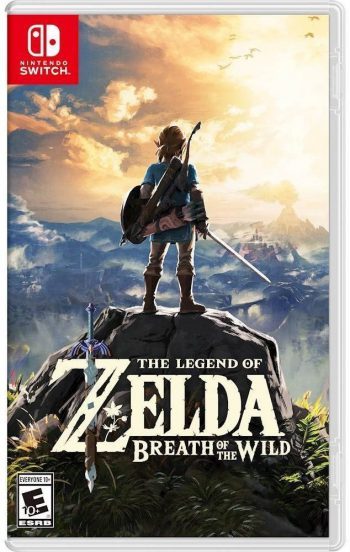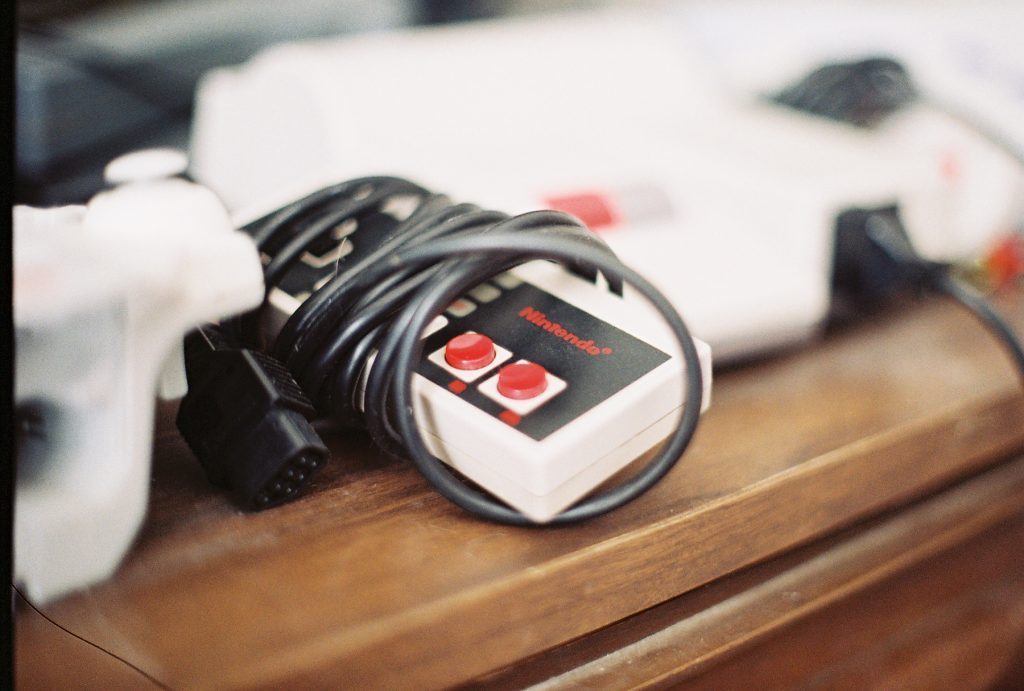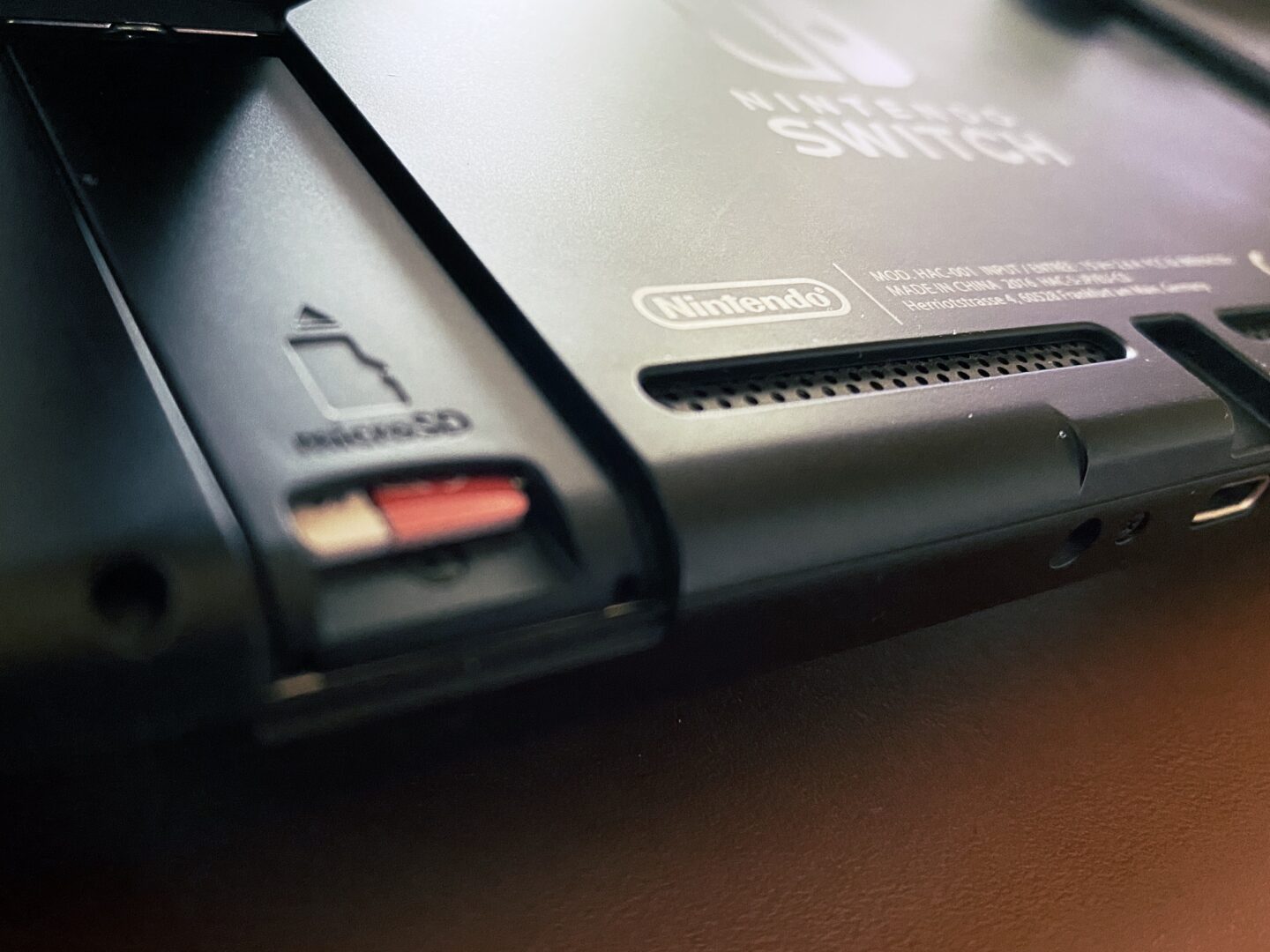I finally bought a larger microSD card for my Nintendo Switch, which means I had to move my files (saves, albums, and downloads) from the old card to the new one. Since Nintendo doesn’t want to tell you how to do this if you’re on a Mac, I figured I’d outline it for you, without any scary Terminal commands to boot.
(more…)Category: Games
I used to run a large game site network back in the day, as in both analog games of role-playing kind, and digital ones involving mushrooms and stomping of said mushrooms. It remains an interest of mine and a way to take my mind off things.
-
-
The Nesticle story
Motherboard tells the story about the NES emulator Nesticle, an interesting read for those of us who used it back in the day:
NESticle, nonetheless, did something amazing: It allowed people to play old Nintendo games on cheap computers made by Packard Bell and other firms, and did so while introducing a number of fundamental new ways to appreciate those games. Divorced from Nintendo’s famously draconian licensing strategy, it introduced new ways of thinking about well-tread video games.
Would we have the retro-friendly gaming culture that we do today without its existence? Maybe, but it’s possible it might not be quite so vibrant.
-
I’m not very good at being sick
Is it a skill to be good at being sick? I guess it could be, because I completely lack it. I’ve been struggling with a lingering cold for close to three weeks, and it finally came into fruition on Friday. Meetings cancelled, stayed out of the office, all that jazz. Saturday was slow, I was exhausted, but no harm done because hey — it’s the weekend after all. I felt better so I stayed up late, had some interesting conversations… Then I did it all over again on the Sunday, and thus my morning shower on the Monday consumed whatever energy I had to offer that day.
I always do this, just like everyone else. You start to get better, you feel better, you’re bored, so you overdo something. Like staying up late, like going to a party, like starting a project, like working too much. Whatever it is you do when you’re at the brink of not being sick anymore, the result is always the same. The backlash hits you hard, you’ll have to rest even more, that sort of thing.
My brain is the first part of me that gets well. It fires up before I’ve even really succumbed to the illness, and it has no patience whatsoever with a feverish body. My brain wants to write. It wants to write code. The brain wants to produce something because it’s the only part of my body that’s functioning. Except it’s not, it’s delusional, even more than normal.
I also write long paragraphs when I’m sick, or so I’m told
I’ve learned to take it easy when I’m sick, for medical reasons but also because most of the things I create in this state will either be thrown out, or put on ice. I never write fiction when I feel crappy, it taints the story somehow. Sometimes I squeeze in a freelance piece, blog post, or such, but never anything that requires a lot from me.
Can’t feed the brain, oh no, it’ll just barge on and through, and then suddenly I’ve launched a new site, started a company, pitched an idea that I can’t possibly follow through on because when I’m well again I have all that other stuff that fills my days.
I also write long paragraphs when I’m sick, or so I’m told.
My timing couldn’t have been better though. There are no huge looming deadlines, just some in the distance, well under control. There is, however, a princess to save. I’ve been spending my days on the couch, playing The Legend of Zelda: Breath of the Wild on Nintendo Switch (which I enjoy tremendously, as you might recall). It might very well be the best Zelda-game to date, rivalling A Link to the Past. I won’t be able to tell until Breath of the Wild has battled with Father Time, any comparison now would be flawed. And yet, that’s where my mind is at the moment.

This is a great game (buy from Amazon) Open world games, where you can roam the vast landscapes and (more or less) shape your in-game destiny appeals to me. I love The Elder Scrolls and have spent so many hours playing Skyrim that it frightens me sometimes. Games like these take time, you have to immerse yourself in the world and figure out who you want to be. It’s a bit like a role-playing game that way, the old school kind with dice and pens and paper and candlelight and nerds in a basement. I like it.
This is also the only way I can make sure I get the rest I need. By chaining myself to a game — Breath of the Wild at the moment — I also make sure I don’t get caught up in something new. I won’t start at short story, rebuild my site (err…), or start any kind of a project. I’ll be too busy exploring the wilderness, farming and cooking and killing monsters and solving puzzles. Possibly writing about it, but that’s fine, it’s connected, it’s not my brain picking the locks to my self-imposed open world prison.
Anything to give myself time to get well again. Whatever works, right?
-
The real problem with gaming on Android
Prune developer Joel McDonald, in a comment to Polygon:
In fact, from a developer’s perspective, Android has been the most pleasing experience of any of the platforms I’ve released on, not to mention that the players have been great,” he continued. “But as a dev you’ve also got to take the platform’s particularities into account. One thing I knew going into it was that the ‘unpaid install’ rate would likely be around 95 percent and this is exactly what I’ve observed. In a lot of cases the smart thing to do is to convert your premium game to be free-to-play on Android, but that just didn’t make sense for Prune, nor was it something that I was personally interested in.
Emphasis mine. The Polygon piece, written by Ben Kuchera, is about switching from Android to iOS because the games launch faster there. While true, the more pressing matter at hand is the piracy, and the fact that this will lead to more crappy/greedy free-to-play business models. This means that there are no premium, pay once and play, games to pirate, but also none to enjoy. From a gamer’s perspective, this can’t be a good thing.
-
Remembering the Nintendo Entertainment System

October 18, 2015, was billed as the Nintendo Entertainment System’s (NES for short) 25th birthday. This is technically true, because although Nintendo’s 8-bit gaming console, that would go on to usher in a new era of gaming, was launched in Japan two years earlier, in July 1983, it wasn’t called NES. In Japan, the NES was the Famicom, short for Family Computer.
In Europe, more precisely, in Sweden, it was the NES, just like in the Northern America. It would be another year until we’d see an European launch though. September 1st, 1986, is the official European launch date, but obviously it all depended on where you were in Europe at the time. Lots of countries, lots of distributors and partners, lots of different markets.
-
Peter Molyneux finally shuts up?
Games industry personality Peter Molyneux says he won’t speak to the press again, but…
Peter Molyneux has admitted regret and culpability; he was clearly in distress throughout the interview – an interview he told us would will be his last. An hour before publication, however, we discovered that he had spoken to the gaming news site Rock, Paper, Shotgun the day before, and had given their interviewer the same impression – that he would no longer be speaking to the press (that interview is now online). He has also spoken to at least one other site, seemingly on the same afternoon as our discussion. Another trail of broken assurances.
Why? Because of the interview with Curiosity winner Bryan Henderson, someone who Molyneux’s company 22Cans has treated like garbage, despite big – and media pimped – promises. The big question is why anyone’s listening to this piece of work anymore.
-
App Store and iOS versions
9to5mac, pointing out the problem of apps that stop working due to iOS version updates. This time, it’s a game from Square Enix, who should be ashamed for not pulling this right away, thus fooling its customers.
But what happens when an app — marketed as compatible with current iPhones, iPads, and iPod touches — is never updated for the latest version of iOS, and either stops working after an iOS upgrade, or never works at all on new devices? That’s the situation buyers of Square Enix’s $18 The World Ends with You: Solo Remix (and $20 iPad version) have found themselves in since iOS 8 was released. The game’s description claims that it “requires iOS 4.3 or later” and is compatible with devices that shipped with iOS 8, but it wasn’t actually iOS 8-compatible.
Apple should consider stepping in and removing this game.
-
Online cripples Holiday gaming
Sony, on three days of PlayStation Network outage:
PlayStation Network is back online. As you probably know, PlayStation Network and some other gaming services were attacked over the holidays with artificially high levels of traffic designed to disrupt connectivity and online gameplay. This may have prevented your access to the network and its services over the last few days.
“Some other network” is Xbox Live, which were up on Friday. This is not the first outage for any of these services, but so far Sony’s been the one lagging behind. Reliance on online services is something that’s proving troublesome, with games needing a connection to work, not just for online play. While that’s not necessarily the case for all console games, so many features are online dependent these days – where online often is a centralized network such as PlayStation Network – it’s obvious that the suppliers of these networks aren’t up to the task.
-
Steam Holiday Sale 2014
Gamers beware, the Steam Holiday Sale for 2014 has started. 63% off Dark Souls II, and 40% off Civilization: Beyond Earth among the discounted games in the first batch. Better set up a budget for this thing…
-
-
Steam Broadcasting
Steam is joining the games broadcasting, err, game, with Steam Broadcasting. Anyone using the Steam beta client (an opt-in thing) can both watch and broadcast their game. This is a big business, something Amazon’s acquisition of Twitch is a testament to, and Steam is late to the game. They have tremendous reach though, so this might take off fast.
-
Nintendo's Steam moment
Nintendo of America’s Reggie Fils-Aime, in a Q&A with Recode:
The fact of the matter is this: We know that our consumers are walking around with a smart device, with access to the Internet on other devices. And we’ve recognized that in a variety of different ways. Our website has a responsive design; we just launched an initiative where through your smartphone or tablet you can buy games and push them right to your device. We’re looking to take advantage of all of those connected consumers. And we’re going to continue to do a variety of experiments, but at the core we believe that, for example, playing Mario Kart — that the Mario Kart experience they get on Wii U or the Mario Kart experience they get on their 3DS is something that, at least today, we don’t see that we can deliver on a Web-enabled smart device. It’s a different type of game.
This sounds exactly like what Valve is doing with Steam and their mobile apps. It also sound pretty reasonable.
-
#GamerGate tries to bring Gawker Media out of business
I’m surprised this hasn’t happened before: GamerGaters going after publications, Gawker Media in particular. From a Vox piece:
How will Operation Baby Seal manage this trick? It’s not particularly clear (and, I should say here, the operation seems unlikely to succeed for sheer logistical reasons), but it mostly involves having aggrieved gamers send bunches and bunches of complaint emails about Gawker Media sites violating Google and Amazon’s terms of service. (Yes, the #GamerGate folks read the terms of service.) The examples are to be drawn from this wiki, which collects a bunch for easy collation into form letters.
KotakuInAction began as a way to mock Kotaku, Gawker Media’s video game publication, for its aspirations toward discussion political aspects of video games, so the grudge between #GamerGate and the company runs deep. But Operation Baby Seal is truly a new level of loathing. The movement seems less to want to expose ethical lapses at this point and more to drive sites it doesn’t agree with from the face of the Earth.
So I guess Vox is up next? These tactics hit on the publications themselves, but as long as they’re complying with their ad terms, they should be just fine. And if they’re not, if Amazon or Google kicks them out because there’s validity to the claims of the GamerGaters, then what’s the problem? This stunt might even bring something good with it, despite the intentions.
-
Nintendo finally turns a profit again
Would you look at that, some positive news from camp Nintendo! The Verge:
Nintendo’s financial situation hasn’t improved dramatically, however the growing sales numbers have helped the company break even in terms of operating income and report a net profit of 14.3 billion yen (roughly $130 million) once foreign exchange gains are factored in as well. What’s more, Nintendo forecasts having a profitable year overall with further improvements in sales anticipated as the holiday season ramps up.
The reason is the excellent Mario Kart 8 for Wii U, moving a lot of consoles. This is well deserved, because if you’re into traditional video games, the Wii U is a great choice. I’m not so sure where the (equally excellent, albeit painfully low-res) Nintendo 3DS fits in, despite the new version. Nintendo’s not out of the woods yet, not by a long shot.
-
New Nintendo 3DS, and the want
Sam Byford, writing for The Verge, on the New Nintendo 3DS:
But let’s be real here: very little about the New 3DS feels new, or even much like a gadget released in late 2014. It’s still made of chunky plastic, the screen is still lower resolution than a standard-definition TV, and the internals are still wildly out of date compared to smartphones from even a few years ago.
It’s just as well, then, that the 3DS’s biggest strength is that it isn’t a smartphone — and that the other changes Nintendo made are all major improvements to the main thing it’s designed to do. Which is play games.
The score’s a respectable 8.2. I’ll probably pick up one of these when they launch in Europe next year (they’re Japan only for the time being), but it’s not a given. The problem isn’t the lack of games – there are plenty of great ones for the 3DS – but the fact that Apple and its App Store developers have utterly destroyed the need, if not the want, for a dedicated handheld games console.
Byford does have a point regarding both the 3DS and the Wii U: If you enjoy, and want to play, traditional video games, and especially those from Nintendo, then these are the games devices to own. That’s the one point where the App Store and its namesakes are sorely lacking. They can’t deliver the traditional games experience, and although there are controllers, they’ve a way to go.
